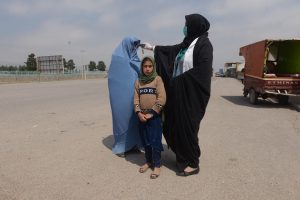As in other countries in Asia and all around the world, COVID-19 has become a nationwide challenge for Afghanistan. Decades of war have wreaked havoc on a health system that is unable to contain or adequately monitor the spread of the virus.
Effective treatment is additionally complicated by ill-prepared and ill-equipped facilities – symbolized by the alarming number of infected health workers, over 850 as of June 4, 2020. Preventive measures such as a “lockdown” of urban areas were initiated in late March. But such efforts have not been effective in containing the spread, while some have further increased socioeconomic hardships in a highly informal economy.
To add insult to injury, many of Afghanistan’s neighbors have temporarily closed their borders and reduced supplies, causing shortages and a spike in food prices in the Afghan markets. Finally, the failure of all conflict parties to agree on a nationwide humanitarian ceasefire will continue to prevent decision makers from joint and decisive action to cope with this existential crisis.
With the support of the Friedrich-Ebert-Stiftung Afghanistan, photographers Mohammad Aref Karim and Mariam Alimi explored everyday life in Herat and Kabul. The aim of the project is to shed a light particularly on the deep socioeconomic impact of the pandemic on Afghan lives and the country’s prospect for peace. The Friedrich-Ebert-Stiftung (FES) is the oldest political foundation in Germany with a rich tradition dating back to its foundation in 1925. Through more than 100 offices worldwide, FES campaigns for the core ideas and values of social democracy: freedom, justice and solidarity.




















































